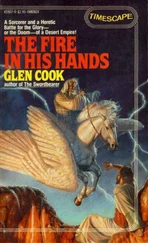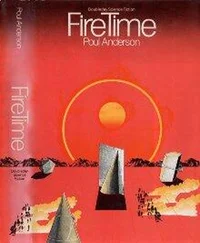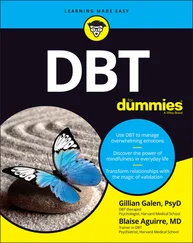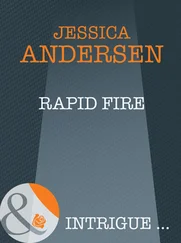Ganak couldn’t decide whether he was concerned at her shrugging off the old ways or if he was proud that she lived her own life. Hansa did not like it but Ganak was not sure, and his diplomatic skills were sometimes tested at home in ways that could rival the current crisis in Kashmir.
Thinking of India and Pakistan pulled down the edges of his smile. These days, walking Maanik to school was one of his only refuges.
“Maanik, I want to hear your ideas but I must caution you, sometimes it is wise to pause after a push.”
“How can that be wise?” she asked. “If something is moving, why not keep it in motion?”
“I read the reports from home before we left this morning. India and Pakistan are both infuriated even while the rest of the world applauds the idea of a protectorate.”
“That’s my point,” Maanik said, undaunted. “Now you need to convince India and Pakistan.”
“Ah. It is that simple?”
“Maybe not so simple, but my ideas can help with that. I’ve been thinking up op-eds for you, press releases, but especially”—she turned and walked backward, facing him and glowing—“what if you let me interview you on video, talking about the situation? Networks would eat that up, parents would watch it with their children, it would be casual and nonthreatening but with our hearts in it, you know? We could get people used to your proposal through conversation instead of arguments. If we get it just right, maybe it could go viral.”
Ganak was impressed. Maanik had prepared a presentation of her own. This revelation about his daughter was one of the reasons that, even in the middle of a crisis, he insisted on maintaining their half-hour, no-cell-phones walk to school.
“Those are very creative ideas, Maanik.”
“Okay! So the next step is, I take a break from school and get an internship with you at United Nations headquarters. Actually, school will probably count that as a class—”
Ganak interrupted. “Interns at the headquarters must be in graduate school. High school students are out of the question.”
“But, Bapu”—she softened him with the Hindi word for “Daddy”—“I have the intelligence and the desire and right now my help is crucial.”
“I appreciate your interest, but every member of the staff is well-credentialed, not just well-intentioned.”
“An exception can be made—”
“Exceptions are the exceptions,” he said.
Maanik frowned. “I don’t even understand that.”
“It means no. I’m sorry, Maanik.”
She turned and walked forward again, visibly frustrated. “So I am supposed to just waste my days thinking up ideas and never making any of them happen?”
“You are a very exceptional young lady—”
“And I am telling you, I am wasting time at school.”
“You are learning about other lives, other times.”
“While I ignore the fact that our homeland could erupt into war? I am trapped in irrelevance, Bapu. I want to help.”
“Your books are not irrelevant.”
“Really? And what if one crazy officer in one of the armies actually prepares to launch a warhead this time? What would you do, talk to him about a novel you read? Or a poem?”
“Maanik, my life, you are about to lose this argument.” He smiled.
“Oh?” She stopped on the corner of Seventy-Sixth Street, shifted her weight onto one hip, and raised her eyebrows at him. “How?”
He grinned. “You are young and impatient. I have been where you have been, but you have not been where I have been.”
Maanik turned suddenly to the six-foot-two blond man with the crooked nose who stood behind them. “Daniel, do you think that’s a good argument?”
“I am neutral in this, ma’am,” said the bodyguard with a smile. Behind the reflective sunglasses his eyes were on the pedestrians who moved around them, peripherally watching the cars drive too quickly on the avenue. He looked along the street as they got a walk sign, and they crossed York into a narrow block full of red brick and green leaves just starting to turn.
“Maanik,” Ganak admonished, “allow him to do his job.” His voice softened quickly. It always did with his daughter. “As for you, your job is to learn patience and to get an education and experience, from which grow wisdom.”
“Patience,” she said impatiently.
“Do you know that is my primary job? To guide patiently, compassionately. To nudge people along, not to wrench them to my goal, my will. I work toward a Kashmir protectorate, but slowly. Do you see this as less courageous than shaking your fist or raising your voice? I tell you, it is more!”
The young woman suddenly looked like the little girl who was still so green in her father’s memory. They walked in silence. He impulsively took her hand in his. She squeezed it tightly.
They reached the stretch of sidewalk before the school doors. It was full of students and a few teachers sending texts or hurrying through conversations before the activities of the first period began at seven forty-five. Today was Human Rights Club, which alternated with Model UN. But Maanik was not rushing to find her friends. Her father saw that she was thinking hard and he almost regretted the conversation.
As he looked around, it appeared as if everyone outside the school was subdued. After he had shown the video of the mother’s suicide to the General Assembly, it had gone viral. He regretted that, especially considering that some of these teenagers had probably watched it, and many more of them must have heard about it. But the world needed a push so that the endless tensions in Kashmir could finally be laid to rest. The Security Council had to pressure India and Pakistan or they would only pressure each other until yes, one day, perhaps a mad general would put an end to the tensions in a much worse way. The ambassador was aware that he had made the situation even more serious. So, after pushing his daughter from a place where she felt she might have some influence, Ganak could not blame her for falling into solemnity.
“Do not dwell on this,” he said, kissing her forehead. “Trust your father.”
“I do,” she said. “It’s the others I do not trust.”
He smiled. “And that is the problem, is it not? Someone must be the first to lay down his saber and believe that the other wants the same thing.”
He waved and turned toward First Avenue. He and Daniel would walk the half hour downtown to the United Nations building, Ganak using the time to mentally rehearse his strategies and make phone calls. Without Maanik by his side he tuned into the city, heard the airplanes and helicopters overhead, the trucks making deliveries, the cars whipping across bumpy streets. He heard the sound of a loud motorcycle but dismissed it without thought.
Daniel did not dismiss the sound at all. The exhaust was so loud that the bike had to have straight pipes, uncommon on the sedate, aging Upper East Side of Manhattan. Daniel stared as the motorcycle turned onto Seventy-Sixth Street—black with red trim, slim rider also in black. It passed a street crew at the corner and roared past a man who was holding a SLOW sign on a pole. That was wrong too: the worker was walking away from the intersection where he should have been managing traffic flow. His strides were long and his gaze leveled on Ambassador Pawar. Shielded by the sign, his free hand disappeared under his yellow-and-red vest—
Outside the high school, no one reacted to the first gunshot. It was just a loud noise under the louder motorcycle. But Ganak turned and froze. That was what the assassins were counting on: paralysis to make him an easy target. That reaction was exactly what Daniel had been trained to overcome.
An instant before the worker had fired, Daniel was already in motion. The bodyguard bear-hugged the ambassador and dropped him hard to the concrete, at the same time turning with his own nine-millimeter drawn. He leaned on his stiff left arm, half-shielding the ambassador, while he aimed toward the street with his right.
Читать дальше












